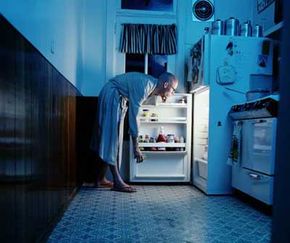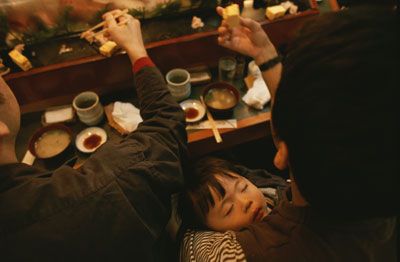On any given night, people are crawling out of bed and heading for their kitchens with unstoppable cravings. They aren't grabbing the usual late-night fare of pizza or leftover takeout. Instead, they are creating bizarre culinary concoctions like salt sandwiches and buttered cigarettes. What's the deal with these gourmands gone wrong?
It isn't faulty taste buds. It's Ambien.
Advertisement
Ambien is a commonly prescribed sleeping pill in the United States that has caught media attention for causing some users to eat in their sleep.
Sleeping and eating are two of our most basic needs, and they are closely related in our brains. The hormones that govern our appetite also influence our sleeping cycles. When you don't get enough sleep, it can disrupt these shared hormones, affecting your appetite. In addition, when we sleep, a chemical called leptin is released to suppress hunger to allow for extended snoozing. Although doctors aren't entirely sure why, zolpidem, the main chemical in Ambien, crisscrosses those sleeping and eating wires in a small percentage of Ambien users.
These users can be hard to find because many don't know they are eating in their sleep. They are not conscious during their nocturnal noshing and don't remember it in the morning. Often, crumb trails or empty candy wrappers, depending on where their mindless foraging led them, are the only evidence of their nighttime adventures.
Who is eating those buttered cigarettes? And are they all on Ambien? Read on for the answers.
Advertisement

